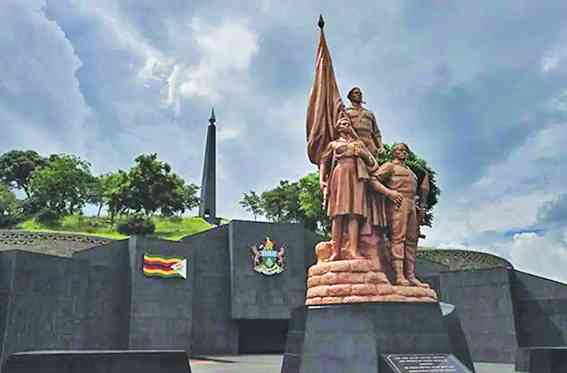
GOVERNMENT this week finally scrapped the Continuous Assessment Learning Activities (Cala) amid escalating pressure from learners and parents, replacing it with a heritage-based education curriculum “designed to mould productive learners who will cherish and practise the Zimbabwean philosophical orientation of Unhu/Ubuntu”.
The new curriculum, Information minister Jenfan Muswere said on Tuesday, would result in Zimbabwean history becoming compulsory.
National shrines and cultural heritage sites will be included throughout the curriculum, and the national pledge will be accorded special emphasis in order to entrench patriotism, loyalty and respect and thereby inculcate the proper mindset, he said, adding that products of the education system should know that Zimbabwe comes first.
The curriculum will be anchored on programmes/learning areas infrastructure, staffing infrastructure, physical and digital infrastructure, legal and regulatory infrastructure and financial infrastructure.
At infant level (ECD A to Grade 2), learning areas are being reduced from the previous eleven to six. The reduction will also apply at junior level (Grades 3 to 7). At Secondary school level, the core and compulsory learning areas are being reduced from seven to five.
The term patriotism has now assumed a different meaning such that those that disagree with the administration are termed sellouts bent on reversing the gains of the liberation struggle for merely highlighting corruption which is so endemic that tenderpreneurs are glorified as successful businessmen overnight.
Political scientist Stephen Nathanson defined patriotism as having four attributes — a special affection for one’s country; a sense of personal identification with the country; special concern for the well-being of the country; and willingness to sacrifice to promote the country’s good.
Exposing government excesses is patriotism as one would have wanted the resources to be deployed in other areas such as health or education.
- Teachers, other civil servants face off
- Veld fire management strategies for 2022
- Magistrate in court for abuse of power
- Vungu Dam water treatment and irrigation project takes off
Keep Reading
Zimbabwe’s history is littered with revisionism with the story of the hunt always glorifying the hunter.
The late nationalists James Chikerema and Ndabaningi Sithole, who is also a Zanu PF founder, were portrayed as “sellouts” on their deaths since they had differed with their fellow comrades in the execution of the liberation struggle. This list also included nationalists Michael Mawema and Wilfred Mhanda.
President Emmerson Mnangagwa’s administration corrected the errors of the past, according Sithole and Chikerema the national hero status.
Zimbabwe’s long-time ruler, the late Robert Mugabe was accused of being a sellout after he appeared to have supported the opposition following his ouster from power. Then Zanu PF MP for Buhera South, Joseph Chinotimba, told supporters at a rally in 2018 that Mugabe was following the footsteps of “wartime sellouts” like the late Sithole.
“If Mugabe and (National Patriotic Front leader Ambrose) Mutinhiri have sold out, then they are not fit to go to the national shrine. There are lots of people he denied the honour because he was in charge and was calling the shots. Sithole was denied the honour because he sold out during the war. Mugabe has sold out, he will not be buried there,” Chinotimba said then.
There is much more to being a patriot and a citizen than reciting the pledge or raising a flag, according to American politician Jesse Ventura.
And as English poet and Anglican hymn writer William Cowper once said no man can be a patriot on an empty stomach.
Like its predecessor, Cala, the heritage-based curriculum will fail on the basis that it is a product of zero consultation and has been foisted on learners.








